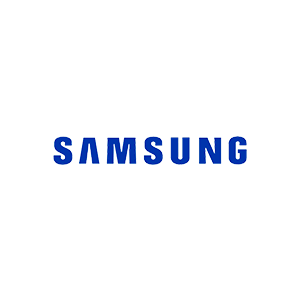Last week's launch of more powerful iPads shows that, for now—and for this line of products at least—Apple is sticking with its long-in-the-tooth “i” prefix. But how much time remains for this dotted relic of the Steve Jobs era, a lower-case vestigial tail with little modern relevance?
Not much time at all, according to brand experts, and also Ken Segall: the creative who, 26 years ago, named the first i-prefixed Apple product.
It was Segall who persuaded Jobs in 1998 to use “iMac” as a new computer name instead of the internally-developed and rather dreadful moniker MacMan. (Thank Segall that there was never such a thing as the ManPhone.)
The iMac—a then radical and lust-worthy machine devised as a ready-out-of-the-box gateway to the internet when other computers were challenging to take online—birthed a long line of Apple “i” products, from the defunct iBook (a curvy, candy-colored laptop derided in the ’90s as “Barbie’s toilet seat”) through to Apple’s still-current data storage platform, iCloud.
Segall, then a copywriter for advertising agency TBWA\Chiat\Day, remains intensely proud of his 12 years of word-wrangling for Jobs; the 74-year-old has written two best-selling books on his time working on Apple's advertising account. And, via a career on the speaking circuit, he has benefited financially from his intimate association with Apple's little prefix, which initially merely meant a device was internet-ready.
“I'm milking this thing as long as I can,” he jokes, speaking from his Los Angeles home. “That I came up with the 'i' in the original iMac makes people interested in what I say.” Interestingly, however, Segall wants to kill his branding baby. He doesn't think Apple should keep the prefix.
“The 'i' needs to go,” he says. “It's now meaningless. Sure, [Jobs] built [Apple] around it, but remember, the 'i' has always been a sub-brand. There might be marketing experts who say Apple would be crazy to drop the prefix—it's still in front of some of the greatest brands ever—but it can't be protected, and for too long there have been companies with 'i' internet-connected things, and that's an issue for Apple, known for innovation.”
Apple iPhone Phone
Ashwinn Krishnaswamy, a partner at the New-York–based branding agency Forge Coop, agrees: “Connectivity is ubiquitous today. There's less of this notion of online versus offline, so it makes little sense to append an 'i' to products. It's overused, it's dated.”
Drop iPhone as a name? Apple “could call it virtually anything, and we're still going to buy it,” Krishnaswamy says. “If [Apple] said there will be no more iPhones—here's the Apple Phone—we'll start calling it the Apple Phone. Apple has such massive distribution, brand and product awareness, that dropping the 'i' in iPhone will not harm their sales.”
Anton Perreau, who runs the New York office for the US/UK communications agency Battenhall, which has worked for Google, Amazon, and Netflix, also thinks Apple wouldn't lose any sales by dropping the “i” in the iPhone—but he predicts Apple won't drop the tiny prefix until a future iteration of its hero device has been significantly restyled.
“The iPhone has such a level of fame, such a level of goodwill, I don't see the name changing until Apple introduces a phone that looks nothing like the existing ones. They've spent so much time and money building the brand equity in the iPhone, so the change won't happen until Apple brings out a product that could have even stronger brand equity than iPhone.”
However, Perreau adds that it's clear that Apple has been transitioning away from the “i” for some time.
“The ‘i’ branding is a hallmark of the Steve Jobs era,” Perreau says. “The newer names—like the Apple Watch and the Apple Vision Pro—show a strategic evolution. Apple didn't announce they'd dropped the ‘i,’ they just haven't said anything about it. The brand isn't ‘i,’ the brand is Apple.”
Still, the volume of iProducts beyond the iPhone and iPad shows the extent to which Apple has leaned on its snappy designation: iMac, iBook, iPod, iPod Mini, iPod Nano, iPod Shuffle and iPod Touch, iPad Mini, iPad Air—and that's not the end of the list.
A notable exception came in 2007 with Apple TV. Many suspected the company's streaming video platform would be called iTV, or have another “i” variation. One reason it wasn't might be that, in the UK, the national commercial broadcasting network, set up in competition to the BBC in 1955, is called the Independent Television network, or ITV. ITV sells programs and show formats worldwide, with ITV America producing Love Island USA, Hell's Kitchen, Queer Eye, and more.
Indeed, seeing the video streaming revolution fast approaching, the BBC launched its own streamed TV service, also in 2007, called iPlayer, trademarking the name in January that year.
Furthermore, at least at some stage in its development, the Apple Watch seems to have been known as the “iWatch,” as can be inferred from a 2014 ABC News interview with Tim Cook where, instead of lauding the newly announced Apple Watch on his wrist, he casually called it an iWatch.
Apple iWatch Watch
One of the reasons Apple ditched “iWatch” before its unveiling in September 2014 might have less to do with a shift away from the weeny prefix and more to do with likely trademark battles. Tiny US startup OMG Electronics filed for trademark protection on the US Patent and Trademark Office's Trademark Electronic Search System (TESS) for an iWatch in 2012, two years before Apple announced its wearable.
The reason for OMG's “i”? Its “ultimate mobile device” was launched on crowdfunding platform Indiegogo. It raised just 1 percent of its $90,000 funding goal, attracting only seven backers. There were similar trademark applications on TESS prior to Apple filing its patents for the wearable, some of which called the device an iWatch in several non-US markets. Indeed, Apple attempted to trademark iWatch worldwide, but failed.
The predictability of Apple's nomenclature was apparent and being exploited. Yes, it could have splashed the cash to buy out the prior-claim minnows, but if the long-term plan was to drop the “i,” why bother?
If Apple did drop the “i,” it would hardly be the company's most significant makeover. Segall points out that the company is familiar with overhauls, and he believes Apple CEO Tim Cook wouldn't lose any sleep over dropping the Jobs-era prefix. Apple did not respond to a request for comment on this article.
“Apple has done some amazingly bold, rash, risky things in the past,” says Segall. “Every time they changed processors or transformed the OS, experts were like, 'Oh my, seriously? You're gonna rebuild the operating system, or you're going to transition to a whole new hardware platform?' But Apple did it.”
He acknowledges that today's Apple is far bigger than the Jobs-era Apple—with more cash at stake and more jobs on the line—and, therefore, it might be more risk averse. However, it also still wants to be known as an innovator, and sticking with a product name for brand equity reasons alone isn't a very Apple way of doing things.
“Think Different,” ran Apple's legendary, Emmy-winning 1997 advertisement, a campaign worked on by Segall. He cowrote the copy for the 60-second TV ad that grouped several pre-Apple geniuses—from Albert Einstein, Thomas Edison, and Martin Luther King Jr. to Mahatma Gandhi, Amelia Earhart, and other “misfits, rebels, and troublemakers”—flagging that the “people who are crazy enough to think they can change the world are the ones that do.”
The campaign was a holding one; Apple had no new products to sell, and as Jobs was fond of telling people at the time and afterward, the company was just 90 days from bankruptcy, with his return to the company that he'd cofounded in 1976 a considerable risk for investors.
MacMan iMac
The Think Different campaign improved Apple's brand awareness, but it took the launch—and mega sales—of the iMac in 1998 to transform the company's profitability. This “Bondi Blue” blob was make or break for Apple, and Jobs made no secret of this fact to his outside advertising agency, TBWA\Chiat\Day.
Initially codenamed C1, the relatively inexpensive, consumer-oriented computer was to be marketed as a machine that could easily connect to the internet—a task now ubiquitous, but a rarity back in the 1990s. The iMac was bright, fun, easy to use, and wildly successful, setting Apple on the way to becoming the behemoth that became the world's richest company in 2011. (Earlier this year, Apple was overtaken by Microsoft as the largest global company by market capitalization.)
Weeks from launch, the original iMac still had no official name. Apple's in-house marketing and product teams toyed with “Rocket Mac,” “EveryMac,” and “Maxter” before favoring “MacMan,” a riff on the Walkman, the influential and top-selling portable audio player manufactured and marketed by Sony since 1979.
“[Jobs] liked that MacMan sounded like Walkman, which was the world's most famous and profitable electronic device at the time,” says Segall.
“He was happy with the association. He gave a speech to the marketing team, saying Sony was such a successful consumer electronics company that Apple might one day want to be like that, and if we get a little rub-off by going with MacMan, he would be fine with that.” That's not very “think different” of Jobs, agrees Segall.
“Looking back, it's perhaps a surprise that [Jobs] was willing to take some rub-off from another brand and name his product in a similar way,” Segall says. “It's contrary to everything people think Steve stood for. But at that time, Apple was near bankruptcy, and all the wheels were spinning in his head about what would help this company-saving new product get attention. He was adamant he wanted MacMan. We said we could do better than that, and he told us to prove it.”
There were stipulations. The new name had to reference the Macintosh brand and make it clear that the machine was designed for the internet. Also, the name, packaging, and ads had to be ready in mere days.
“Now go out there and give me a great name,” Jobs told his team, Segall says. They workshopped five names. Segall's favorite was his wordplay, the iMac.
“iMac referenced the Mac, and the ‘i’ meant internet,” Segall remembers. “But it also meant individual, imaginative, and I, as in me.” And it was short—a plus, but also a leap forward. “At that time, not a single Apple computer had shortened Macintosh to Mac. They were all Macintoshes,”
The first presentation to Jobs for the new name didn't go well, says Segall. “I had five boards put together, and each board had the image of what became the iMac, along with the other names we came up with. They were ringers because I favored iMac.”
But Jobs didn't, tasking the team to go back and work on further names. Segall, however, stuck to his guns, and at the next meeting introduced three new names, but also brought back his favorite.
“The first time [Jobs] saw the word ‘iMac,’ he hated it. The second time it wasn’t love at first sight. He said, ‘I don’t hate it this week, but I still don’t like it.’” Nevertheless the name stuck.
“We knew this was the computer that had to save Apple,” says Segall. “That's how we had been briefed on it before we saw it. When it had been unveiled to our team, our mouths hit the floor. It was very, very bold. I looked at that computer and, like many in the room, doubted it would sell. That proves I'm not a visionary. I am simply a guy who can write good words for a visionary. [Jobs] and Jony Ive thought the iMac was going to change the world. It certainly saved Apple.”
Going further, in the naming presentations, Segall stressed that his “i” prefix could be used for more Apple hardware yet to be developed. “I tried to convince [Jobs] that the 'i' was a foundational element that could be used for other products. Not that there were other consumer products at the time, and certainly no concept of handheld devices.”
Now, Apple without Jobs is a very different company, Segall thinks. “[Jobs] couldn't be replaced by one person. He inflicted his high level of taste upon all parts of Apple, always staying true to core values, including thinking differently. Little by little, that has been chipped away over the years,” he says.
“We’ll never know what [Jobs] would have done had he lived longer. But he wouldn’t have been afraid to scrap the ‘i.’”







